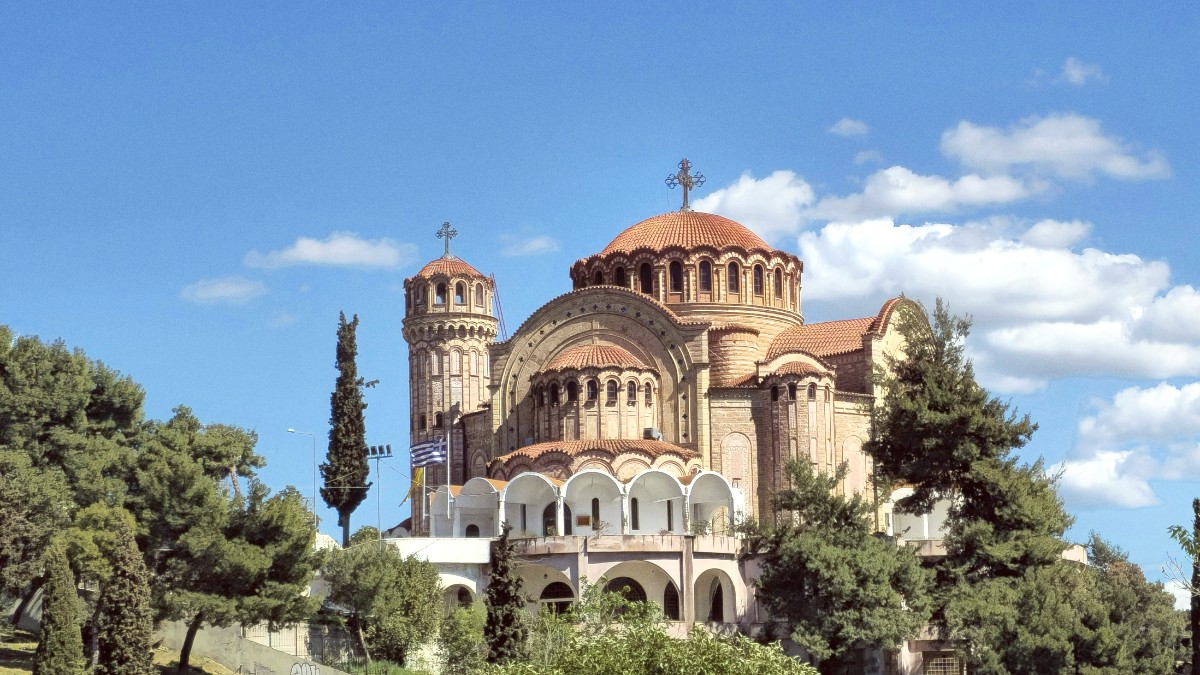
Northern Greece, Greece
Summer (June-August): Temperatures typically span 25°C to 35°C (77°F to 95°F). July and August are the hottest. Heatwaves push temperatures above 40°C (104°F). Humidity is moderate to high. Rainfall is minimal. Nights remain warm. The sea nearby is warm for swimming.
Autumn (September-November): Temperatures gradually cool. September feels like an extension of summer. Rainfall increases, with November being one of the wettest months. The air feels crisper. Leaves change color. Spring (March-May): Temperatures rise. March remains cool, but May brings pleasant warmth. Rainfall is moderate. Flowers bloom, and city parks become green.
Summer heatwaves push temperatures above 40°C (104°F). Hydration and shade are important. Avoid strenuous activity during midday (1 PM to 4 PM). Staying in air-conditioned environments is a good strategy.
Thessaloniki can experience strong winds, notably the Vardar wind. This northerly wind blows from the Axios River valley. It can make cooler temperatures feel colder, especially in winter or early spring. A windproof jacket works well during these times.
Warmest weather, peak activity
Ideal for beach visits. Late-night outdoor activities and nightlife peak. All tourist services operate fully. Lively atmosphere.
High temperatures make daytime sightseeing uncomfortable. Crowded attractions. Higher prices for accommodation and flights.
Pleasant temperatures, fewer crowds
Temperatures pleasant for sightseeing. Fewer crowds. Prices more moderate. Many cultural festivals occur. Photography light often softer.
Occasional rain showers. Sea may feel cool for swimming early spring/late autumn. Some seasonal coastal attractions not fully operating.
Lowest prices, local experience
Lowest prices for accommodation and flights. Fewer tourists for a more authentic local experience. Museums and culinary scene without queues. Festive decorations around holidays.
Cooler temperatures, higher chance of rain. Some coastal attractions may close. Shorter daylight hours. Fewer outdoor events.
The shoulder seasons (April-May, September-October) present ideal temperatures for walking around and visiting historical sites. Fewer crowds make the experience more relaxed.
The low season and shoulder seasons present a more local experience. Fewer queues at restaurants and museums allow for engagement. Many cultural events like film festivals happen in the autumn.
High season (July-August) presents the warmest sea temperatures. Early September can also be pleasant with slightly fewer crowds.
Late spring (May-early June) and early autumn (September-October) present cooler temperatures and stable weather.
Mid-summer heat makes hiking challenging; winter snow at higher elevations presents difficulties.
Consider your priorities when choosing your travel dates.
Each season displays a different look at this city.
Greece, as a member of the Schengen Area, holds common rules for entry. Plan your documentation well in advance to avoid last-minute issues.
Citizens of the United States, Canada, Australia, New Zealand, the United Kingdom, and many other countries enter Greece (and the entire Schengen Area) for tourism or business. This permits stays of up to 90 days within any 180-day period without a visa.
Citizens from countries not covered by visa-exempt agreements must apply for a Schengen visa (Type C short-stay visa). Apply at the Greek embassy or consulate in your country of residence before your travel dates.
Costs vary widely based on your travel style. The official currency in Greece is the Euro (€, EUR). ATMs are widely available and present the most accessible method to obtain Euros. Inform your bank of travel plans. Credit/Debit Cards are widely accepted in hotels, larger restaurants, shops, and supermarkets. Always carry some cash for smaller purchases.
This section covers health recommendations, safety tips, and emergency contact information.
No specific mandatory vaccinations. Routine immunizations (MMR, DTP, Polio) should be up-to-date. Hepatitis A and B are often advised. Consult your healthcare provider 4-6 weeks before travel.
Sunburn and dehydration are common in summer. Use Sunscreen, wear a Hat and sunglasses. Drink plenty of water. Heat exhaustion during heatwaves: avoid midday strenuous activity. Minor stomach upsets are rare with tap water; practice good food hygiene. Mosquitoes are present, use Insect repellent.
Dial 112 for the Pan-European Emergency Number. Thessaloniki holds several public and private hospitals (e.g., AHEPA, Ippokrateio). Pharmacies (Farmakeia) are widely available. EU citizens use their European Health Insurance Card (EHIC). Travel insurance is highly recommended for all travelers.
Drinking Water: Tap water in Thessaloniki is generally safe to drink.
Food hygiene standards are generally good. Eat at reputable establishments. Street food is popular and generally safe; observe where locals eat and if food is cooked fresh. Look for busy places; high turnover suggests freshness.
Natural Disaster Risks: Greece is seismically active. Minor tremors occur. Buildings constructed for seismic activity. Heatwaves occur in July and August. Forest fire risk is higher in dry, hot summer months in rural areas. Stay informed about local news.
Always carry a Reusable water bottle to fill up.
A comprehensive policy should cover medical emergencies, hospitalization, emergency medical evacuation, trip cancellation or interruption, lost or stolen luggage, and personal liability. Consider policies with coverage for specific activities you plan.
Highly recommended for all travelers, especially non-EU citizens. It protects you financially from unforeseen events. Read the fine print to understand limitations and exclusions. Get quotes from World Nomads, SafetyWing, or Insubuy.
Purchase insurance well before your trip departure date.
Thessaloniki is a relatively low crime rate. Petty crime, like pickpocketing and bag snatching, occurs in crowded tourist areas (Aristotelous Square, markets, public transport). Be vigilant.
Thessaloniki is generally safe, but some areas warrant extra awareness, especially after dark.
Generally safe day and night. Remain aware of pickpockets in crowded areas.
A safe and lively nightlife district. Crowds deter serious crime, but remain aware.
This area feels less safe at night due to more transient populations. Exercise caution after dark.